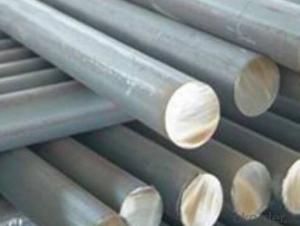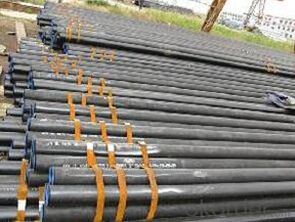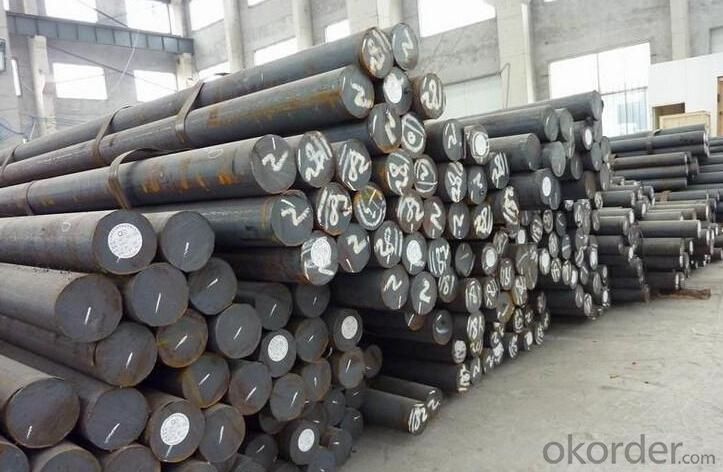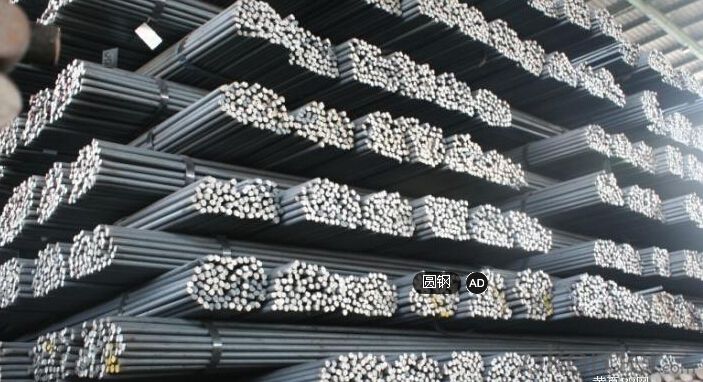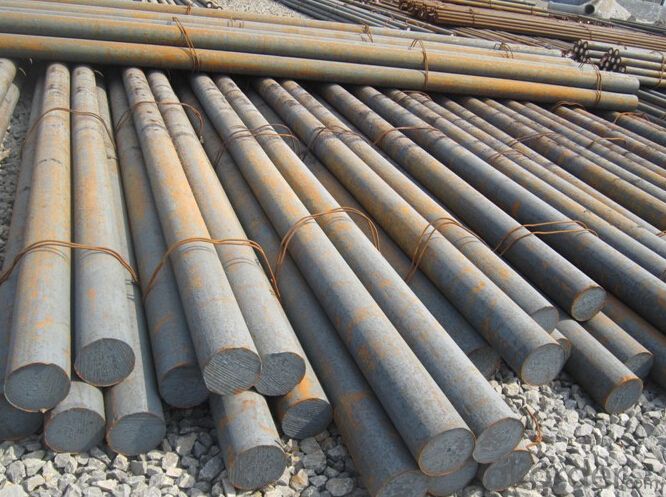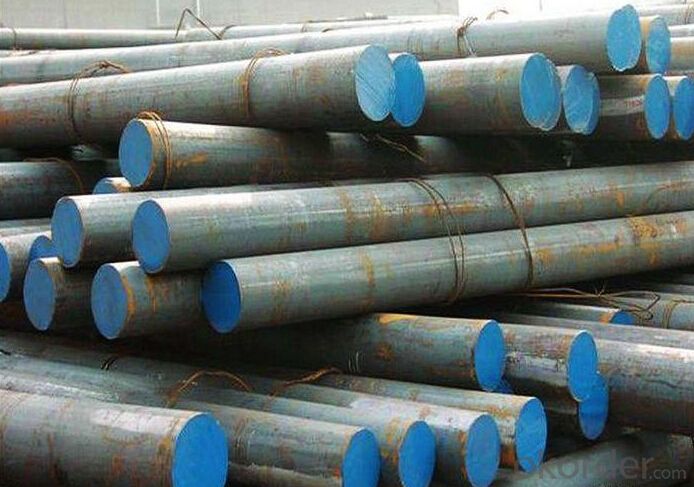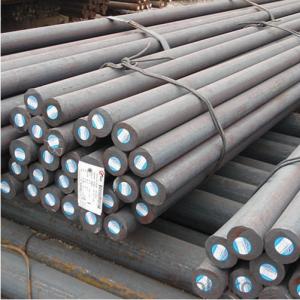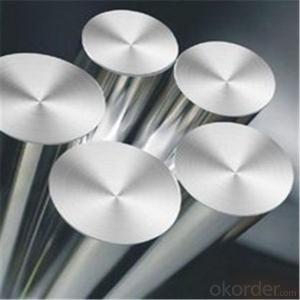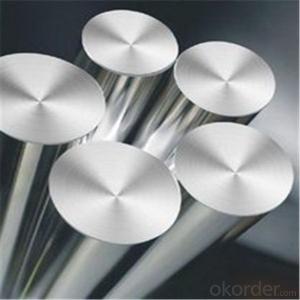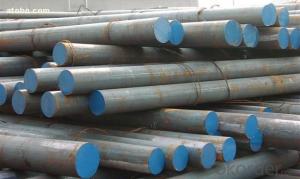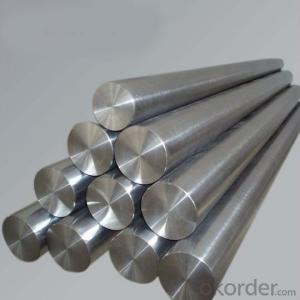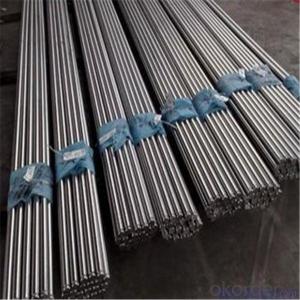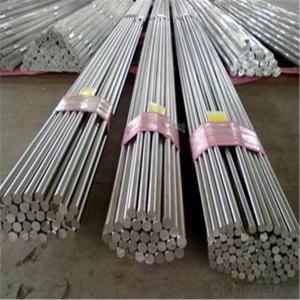Grade SKS31 Mold Steel Round Bar Price Per Ton
- Loading Port:
- Shanghai
- Payment Terms:
- TT OR LC
- Min Order Qty:
- 3 m.t.
- Supply Capability:
- 100000 m.t./month
OKorder Service Pledge
OKorder Financial Service
You Might Also Like
Specification
Grade SKS31 Mold Steel Round Bar Price Per Ton
Details Information of Grade SKS31 Mold Steel Round Bar Price Per Ton
| Name | Grade SKS31 Mold Steel Round Bar |
| Shape | Round Bar/Square Bar/Flat Bar/Plate/Wire |
| Standard | GB/ASTM/SAE/AISI/DIN/JIS/EN/BS |
| Surface Treatment: | Black/Peeling/Polished/Machined |
| Delivery Condition: | Hot Rolled or Forged/Peeled or Black Surface |
| Test | SGS/UT 100% Elements Testing |
| Certificate: | ISO/Mill Certificate |
| Service: | 24 hours online service / |
| more than 20 years trading and manufacture | |
| Quality Assurance: | the third party inspection, such as SGS, BV, TUV…etc. is acceptable |
| Packaging Details: | Seaworthy Packaging or as per customer's packing instruction |
| Carbon structure round bar | Q195 Q235A Q235B 10# 20#-55# S45CB |
| Low alloy high strength round bar | Q345A/Q345C/Q345D Q345B Q345E |
| Alloy structure round bar | SAE51B20 20Cr 40Cr 40CrV 20CrMo/30CrMo/35CrMo/42CrMo 20CrMoA/30CrMoA/35CrMoA/42CrMoA/42Cr ML20CrMo/ML30CrMo/ML35CrMo/ML42CrMo B7/SCM435-440 20MnTiB 20CrMnMo 20CrMoH 42CrMoH 40MnB/40MnBH 30Mn2-40Mn2 27SiMn 50CrVA 30CrMnTi |
| Pinion steel | 20CrMnTi 20CrMnTiH 20CrMnTiHCS/20CrMnTiHLD Q20CrMnTi-1/Q20CrMnTi-2 |
| Sucker rod | 20-35CrMoA |
| Free-cutting steel | GT1215S |
| Spring steel | 60Si2MnA 65Mn |
| Ball bearing steel | GCr15 |
Chemical Composition of Grade SKS31 Mold Steel Round Bar Price Per Ton
| Equivalent Grade | Chemical Composition(%) | |||||||
| C | Si | Mn | Cr | Mo | P | S | ||
| China/ GB | CrWMn | 0.9~1.05 | ≤0.4 | 0.8~1.1 | 0.9~1.2 | 1.2~1.6 | ≤0.03 | ≤0.03 |
| Germany/DIN | 1.2419 | 1~1.1 | 0.1~0.4 | 0.8~1.1 | 0.15~0.25 | ≤0.03 | ≤0.03 | |
| Japan/JIS | SKS31 | 0.95~1.05 | ≤0.35 | 0.9~1.2 | 0.8~1.2 | |||
| Available Size | ||
| Rolled round bar | φ65-120mm × L | |
| Forged round bar | φ130-290mm × L | |
| Heat Treatment | ||
| Item | Temperature ℃ | Hardness |
| Anneal | 770-790 | 207-255HB |
| Quenching | 820-840 | 62-65HRC |
| Tempering | 200-280 | 55-62HRC |
Company Introduction of Grade SKS31 Mold Steel Round Bar Price Per Ton
CNBM International Corporation is the most import and export platform of CNBM group(China National Building Material Group Corporation) ,which is a state-owned enterprise, ranked in 270th of Fortune Global 500 in 2015.
With its advantages, CNBM International are mainly concentrate on Cement, Glass, Iron and Steel, Ceramics industries and devotes herself for supplying high quality series of refractories as well as technical consultancies and logistics solution.
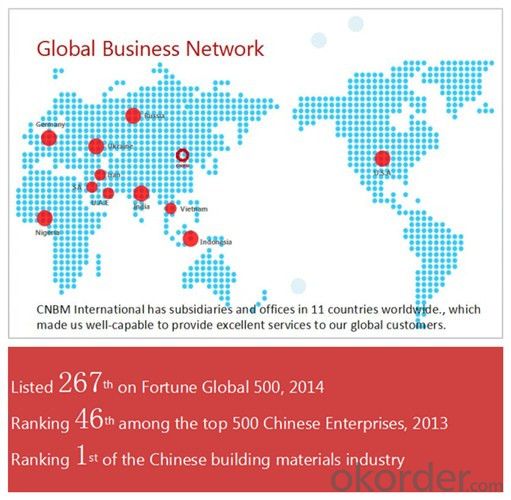
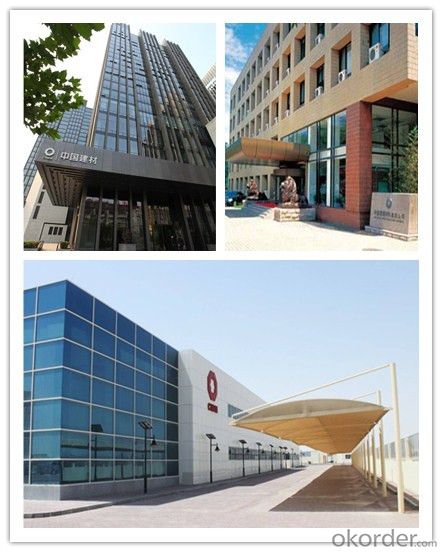
Certificates of Grade SKS31 Mold Steel Round Bar Price Per Ton
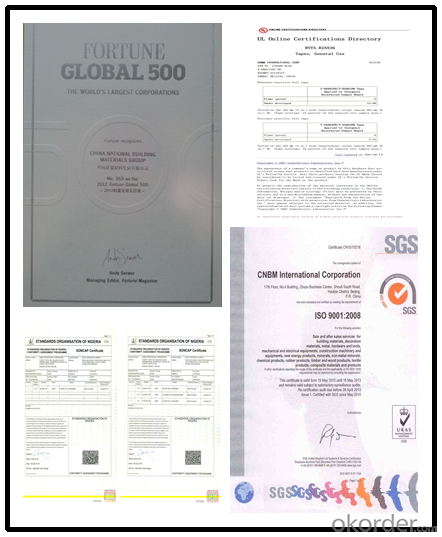
Packaging & Delivery of Grade SKS31 Mold Steel Round Bar Price Per Ton
Packaging Detail | Sea worthy packing /as per customer's packing instruction |
Delivery Detail | 15 ~ 40 days after receiving the deposit |
Products show of Grade SKS31 Mold Steel Round Bar Price Per Ton
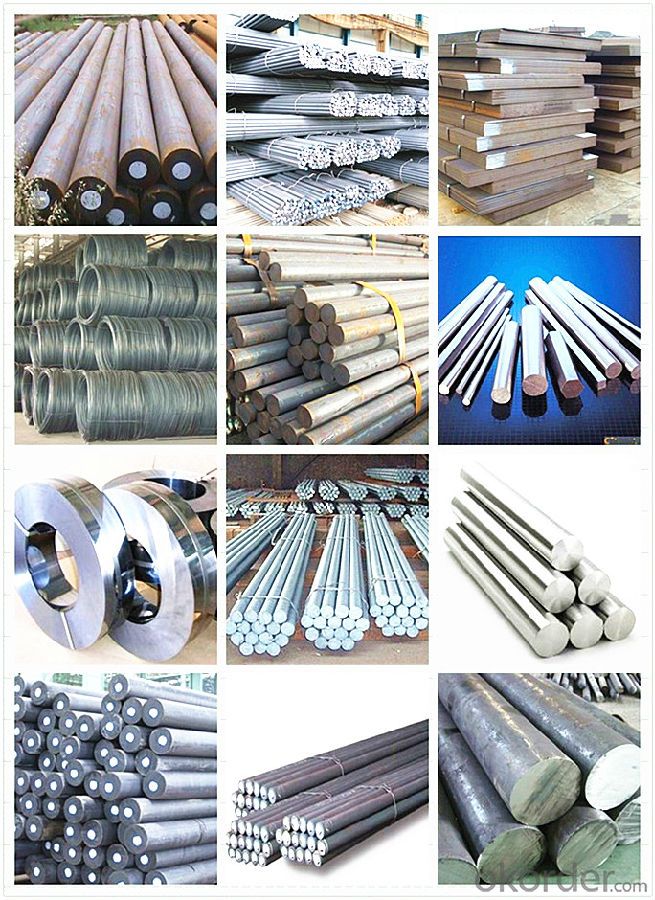
FAQ
Are you a trading company or manufacturer? | Manufacturer |
What’s the MOQ? | 3 metric ton |
What’s your delivery time? | 15-35 days after downpayment received |
Do you Accept OEM service? | Yes |
what’s your delivery terms? | FOB/CFR/CIF |
What's the Payment Terms? | 30% as deposit,70% before shipment by T/T |
Western Union acceptable for small amount. | |
L/C acceptable for large amount. | |
Scrow ,Paybal,Alipay are also ok | |
Why choose us? | Chose happens because of quality, then price, We can give you both. Additionally, we can also offer professional products inquiry, products knowledge train (for agents), smooth goods delivery, excellent customer solution proposals. |
What's your available port of Shipment? | Main Port, China |
What’s your featured services? | Our service formula: good quality+ good price+ good service=customer's trust
|
Where are your Market? | Covering more than 160 countries in the world |
- Q: How can I determine the cooling water flow of square billet mold for special steel?
- The mould water quantity is calculated according to experience. The cooling water quantity of mould is calculated according to the periphery length of mould:W=2 (L+D) - QkW in mould -- cooling water quantity of mould;L - slab width, mm;D - slab thickness, mm;Qk - water flow per unit length, L/ (min = mm), for billet mold, 2.0~3.0L/ (min. Mm).
- Q: What are the different quality control measures for special steel production?
- There are several quality control measures for special steel production, including thorough material inspections, precise chemical composition analysis, stringent dimensional and shape control, non-destructive testing methods such as ultrasonic and magnetic particle inspections, and rigorous mechanical property evaluations. Additionally, heat treatment processes and surface treatments are closely monitored to ensure the desired properties and surface finish of the special steel. Continuous monitoring and quality checks are essential throughout the production process to maintain the highest standards and meet customer requirements.
- Q: How does special steel contribute to the performance of cutting tools?
- Special steel plays a crucial role in enhancing the performance of cutting tools by providing a range of beneficial properties. Firstly, special steel used in cutting tool manufacturing offers exceptional hardness, which allows the tool to withstand high levels of stress and wear. This hardness ensures that the cutting edge remains sharp for a longer period, resulting in improved cutting efficiency and precision. Moreover, special steel is known for its excellent toughness and resistance to chipping and breaking. This property is crucial in cutting tools as it allows them to withstand the high forces and vibrations generated during the cutting process. The toughness of special steel ensures that the tool can endure these extreme conditions without compromising its performance or structural integrity. Additionally, special steel offers excellent heat resistance and temperature stability. During cutting operations, the tool can generate significant amounts of heat due to friction. Special steel's ability to resist thermal deformation and maintain its hardness at high temperatures prevents the cutting edge from becoming dull or losing its effectiveness. Furthermore, special steel can be tailored to specific applications through alloying and heat treatment processes. This flexibility allows manufacturers to optimize the steel's properties based on the cutting tool's intended use, such as cutting different materials or operating in challenging environments. By customizing the special steel, cutting tools can be designed to deliver optimum performance, durability, and longevity. In conclusion, special steel contributes significantly to the performance of cutting tools by providing exceptional hardness, toughness, heat resistance, and customization options. These properties ensure that cutting tools remain sharp, durable, and efficient, enabling them to achieve precise cuts and withstand demanding cutting operations.
- Q: What are the main factors affecting the hardness of special steel?
- There are several main factors that influence the hardness of special steel. 1. Carbon content: One of the key factors is the carbon content in the steel. Carbon is a hardening element that increases the strength and hardness of the steel. Higher carbon content typically results in higher hardness. 2. Alloying elements: The presence of alloying elements such as chromium, manganese, nickel, and tungsten also affects the hardness of special steel. These elements form various compounds and solid solutions, which can enhance the hardness and strength of the steel. 3. Heat treatment: The heat treatment process, which involves heating and cooling the steel, significantly impacts its hardness. Quenching, a rapid cooling process, can increase the hardness by transforming the steel's microstructure. Tempering, on the other hand, can reduce hardness while improving toughness. 4. Crystal structure: The crystal structure of the steel can influence its hardness. For example, martensite, a hard and brittle structure formed during quenching, provides high hardness. Other crystal structures like ferrite or pearlite may have lower hardness. 5. Grain size: The size of the grains in the steel's microstructure can affect its hardness. Smaller grain sizes generally result in higher hardness due to improved strength and reduced dislocation movement within the material. 6. Work hardening: The process of plastic deformation, such as rolling or forging, can increase the hardness of steel. This work hardening occurs as dislocations in the crystal lattice get trapped and hinder further dislocation movement, resulting in increased hardness. 7. Impurities and inclusions: The presence of impurities or non-metallic inclusions in the steel can affect its hardness. These impurities can act as stress concentrators and reduce the hardness of the material. It is important to consider these factors and carefully control them during the manufacturing process of special steel to achieve the desired hardness for specific applications.
- Q: What are the properties of ultra-high-strength alloy steel?
- Ultra-high-strength alloy steel possesses exceptional strength, hardness, and toughness, making it ideal for demanding applications. Due to its high carbon content and alloying elements such as chromium, nickel, and molybdenum, it exhibits outstanding resistance to wear, corrosion, and heat. Additionally, its superior mechanical properties enable it to withstand heavy loads, impacts, and extreme environments, making it a preferred choice in industries like aerospace, automotive, and construction.
- Q: How does special steel perform in high-temperature corrosion?
- Special steel is specifically designed to perform well in high-temperature corrosion environments. It possesses unique properties that make it highly resistant to oxidation and corrosive reactions at elevated temperatures. One of the key factors that contribute to special steel's performance in high-temperature corrosion is its high chromium content. Chromium forms a protective oxide layer on the surface of the steel, known as a passive film, which acts as a barrier against corrosive elements. This passive film is stable even at high temperatures, preventing the steel from undergoing oxidation and corrosion. Additionally, special steel often contains other alloying elements such as nickel, molybdenum, and titanium, which further enhance its resistance to high-temperature corrosion. These elements increase the steel's ability to withstand aggressive chemical environments, such as those encountered in industrial processes involving high temperatures and corrosive substances. Furthermore, special steel is known for its excellent mechanical properties, including high strength and toughness, which enable it to withstand the harsh conditions of high-temperature corrosion. It can maintain its structural integrity and dimensional stability even when exposed to extreme temperatures and corrosive chemicals. Overall, special steel's superior resistance to high-temperature corrosion makes it an ideal choice for various applications in industries such as petrochemical, power generation, and aerospace. Its ability to maintain its performance and durability in challenging environments ensures the longevity and reliability of equipment and structures, ultimately reducing maintenance and replacement costs.
- Q: What are the different forms in which special steel is available?
- Special steel is available in various forms such as bars, sheets, plates, coils, tubes, pipes, and wires.
- Q: How does special steel contribute to the aerospace noise reduction?
- Special steel contributes to aerospace noise reduction by providing high strength and durability, which allows for the construction of lighter and more aerodynamic aircraft components. This reduces the overall weight of the aircraft, leading to decreased fuel consumption and noise emissions. Additionally, special steel's unique properties, such as its ability to dampen vibrations and resist corrosion, help to minimize the transmission of noise and vibrations throughout the aircraft structure, resulting in a quieter and more comfortable flying experience for passengers and crew.
- Q: How does special steel contribute to the formability of products?
- Special steel, which is also known as alloy steel, plays a vital role in enhancing the formability of products. Various industries, including automotive, aerospace, and construction, find special steel to be an ideal choice due to its unique properties and composition. One way in which special steel contributes to product formability is through its exceptional strength and durability. Engineered to have a higher tensile strength compared to regular steel, special steel can undergo significant deformation without breaking or cracking. This characteristic allows manufacturers to shape and mold the steel into intricate and complex designs, resulting in products with improved formability. Moreover, special steel offers excellent resistance to deformation, specifically elastic deformation. This means that even after enduring significant stress or strain, the steel can return to its original shape, minimizing the risk of permanent deformation. Such a feature proves advantageous in applications where products need to withstand repeated bending or shaping without compromising their structural integrity. Additionally, special steel often contains specific alloying elements like chromium, nickel, or molybdenum, which further enhance its formability. These alloying elements improve the steel's ability to be easily formed and manipulated, making it more ductile and minimizing the chances of cracking during the forming process. Furthermore, special steel can undergo heat treatment to modify its mechanical properties and enhance its formability. Annealing or quenching are some of the heat treatment processes that can make the steel more malleable, allowing for easy shaping and forming into desired products. In conclusion, special steel plays a critical role in enhancing product formability due to its exceptional strength, resistance to deformation, inclusion of alloying elements, and heat-treatability. These properties enable manufacturers to create products with intricate designs and complex shapes, fulfilling the diverse needs of various industries while ensuring durability and structural integrity.
- Q: What are the requirements for special steel used in marine applications?
- Special steel used in marine applications must meet certain requirements to ensure its durability and performance in the harsh marine environment. These requirements typically include high corrosion resistance to withstand exposure to saltwater, excellent strength and toughness to withstand extreme forces and impacts, good weldability for ease of fabrication and maintenance, and low magnetic permeability to avoid interference with electronic equipment. Additionally, the steel must be able to withstand fluctuating temperatures and be resistant to fatigue and stress corrosion cracking to ensure long-term reliability in marine applications.
Send your message to us
Grade SKS31 Mold Steel Round Bar Price Per Ton
- Loading Port:
- Shanghai
- Payment Terms:
- TT OR LC
- Min Order Qty:
- 3 m.t.
- Supply Capability:
- 100000 m.t./month
OKorder Service Pledge
OKorder Financial Service
Similar products
Hot products
Hot Searches
Related keywords
